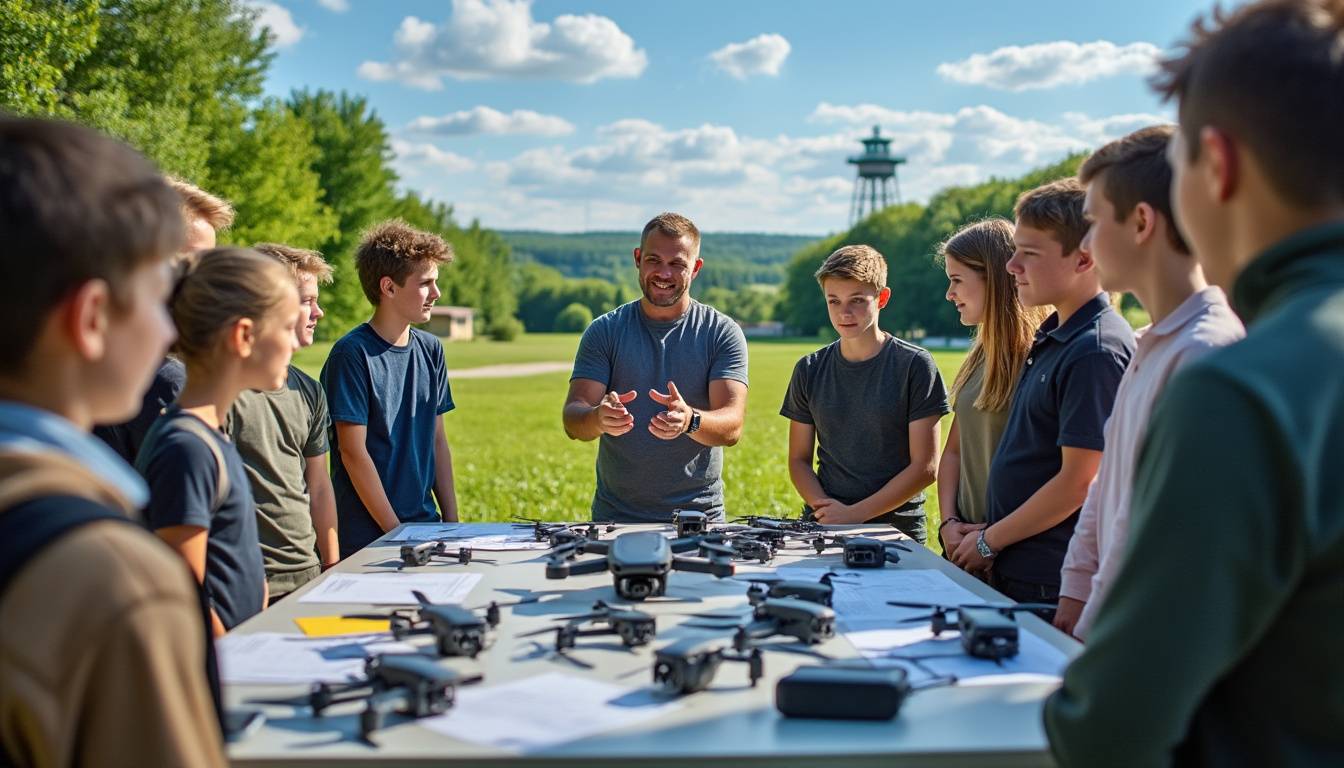Along Lithuania’s border with Russia, a pioneering educational initiative is reshaping how the next generation approaches technology and national security. The Lithuanian government has launched a program to teach children as young as eight to build, operate, and pilot drones, demonstrating the country’s forward-thinking response to geopolitical challenges. By combining hands-on drone training with advanced skills development, this initiative prepares young minds for a future where technology and civic resilience intertwine.
Comprehensive Drone Training for Lithuanian Youth Near the Russian Border
Lithuania’s bold move to establish nine drone training centers nationwide is set to equip more than 22,000 participants, including 7,000 children, with essential drone piloting knowledge by 2028. The program tailors instruction to different age groups:
- Young children (ages 8-10): Basic drone assembly and elementary flight operations.
- Adolescents and teenagers: Advanced drone design, building, and piloting techniques, including first-person view (FPV) technology often used in tactical scenarios.
- Adults: Tactical deployment and programming skills, enhancing civil defense competencies.
This structured curriculum leverages popular drone technologies from leading manufacturers such as DJI, Parrot, Autel Robotics, Skydio, and Yuneec, ensuring trainees become familiar with industry benchmarks. The initiative also incorporates models from Holy Stone, Walkera, and PowerVision to broaden exposure to diverse drone platforms.
Advantages of Introducing Drone Education in Early Schooling
Educators highlight that early exposure to drone technology fosters:
- Problem-solving and engineering skills: Students learn to troubleshoot and optimize drone performance.
- STEM enthusiasm: Engagement with coding, electronics, and aerodynamics motivates students toward science and technology careers.
- Responsibility and ethical use: Training includes civic-minded drone deployment to promote conscientious operating behavior.
By demystifying complex robotics through approachable lessons, this program empowers youth to become confident in emerging technologies.
Building a National Defense Skillset Through Drone Literacy
Close to a tense geopolitical frontier, Lithuania’s drone training serves a dual role: enhancing educational outcomes and strengthening national civil resilience. Reflecting NATO’s growing focus on unmanned aerial systems, Lithuania’s initiative educates citizens on:
- Drone assembly and maintenance: Understanding the mechanics behind drones.
- Operational piloting skills: Navigating drones using FPV systems, crucial for reconnaissance and surveillance.
- Data collection and analysis: Utilizing drone sensors for environmental and security monitoring.
Manufacturers like Hubsan and Freefly Systems provide models that simulate real-world operational challenges, preparing trainees for hands-on scenarios.
How This Training Supports Civil Protection and Security
By familiarizing citizens with drone technology, Lithuania
- Increases community awareness of aerial surveillance methods.
- Develops a skilled reserve capable of assisting defense efforts during crises.
- Promotes technological literacy as a strategic asset amid evolving security dynamics.
This approach ensures that both young learners and adults contribute to a culture of preparedness and innovation, thereby enhancing national resilience.
Incorporating Drone Technology into Educational Curricula Strategically
Lithuania’s interdisciplinary drone curriculum goes beyond flight mechanics, embedding key aspects of coding, electronics, and ethical use of technology to foster well-rounded learners. Specifically, students explore:
- Programming basics: Using languages and platforms suited to controlling drones and analyzing flight data.
- Aerodynamics: Fundamental principles that govern flight stability and efficiency.
- Safety protocols and regulations: Understanding legal frameworks and privacy considerations regarding drone use.
This holistic approach is designed to cultivate both technical expertise and a responsible mindset, preparing learners for future academic or career pathways in tech-driven fields.
Key Educational Benefits in Lithuania’s Drone Program
- Hands-on learning enhances engagement and retention.
- Collaboration and teamwork encouraged through group drone projects.
- Exposure to cutting-edge technology nurtures adaptability and innovation skills.


